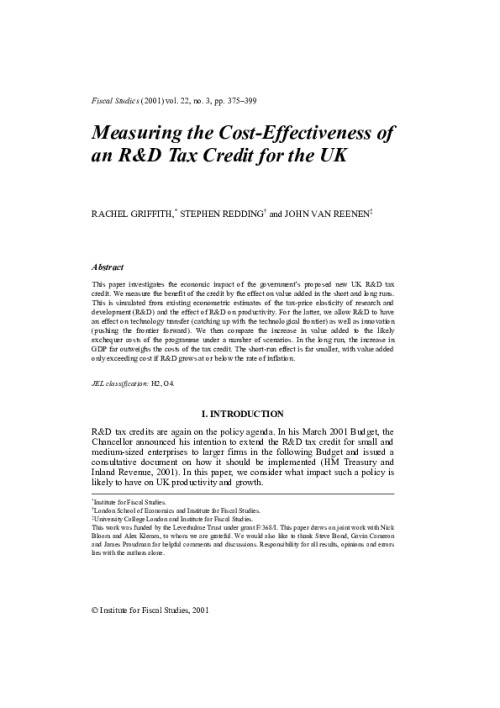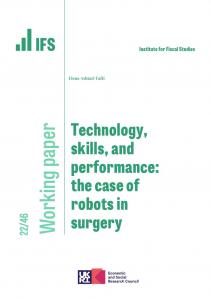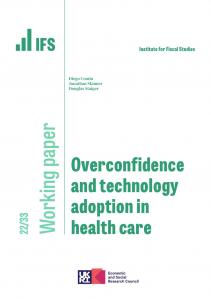Downloads

0047a.pdf
PDF | 244.24 KB
Authors

CPP Co-Director, IFS Research Director
Rachel is Research Director and Professor at the University of Manchester. She was made a Dame for services to economic policy and education in 2021.

Stephen Redding

John Van Reenen
Journal article details
- ISSN
- Print: 0143-5671 Online: 1475-5890
- Issue
- September 2001
Suggested citation
R, Griffith and S, Redding and J, Van Reenen. (2001). 'Measuring the cost-effectiveness of an R&D tax credit for the UK' (2001)
More from IFS
Understand this issue

It’s time to take a firmer grip on companies and competition law
Globalisation, inequality, feeble productivity growth, earnings stagnation, the falling labour share of national income — the most important features of economic life. And one institution binds them together: the firm.
25 April 2022

Spring Budget 2024: What you need to know
7 March 2024

If you can’t see it, you can’t be it: role models influence female junior doctors’ choice of medical specialty
24 April 2024
Policy analysis

Freeports: What are they? What do we know? And what will we know?
10 March 2023

Freeports and Investment Zones – what sorts of things should we consider when assessing whether they are good policy?
10 March 2023

UK outlook: why we need to do things differently
11 October 2022
Academic research

Firms and inequality
3 March 2022

Technology, skills, and performance: the case of robots in surgery
7 November 2022

Overconfidence and technology adoption in health care
31 August 2022